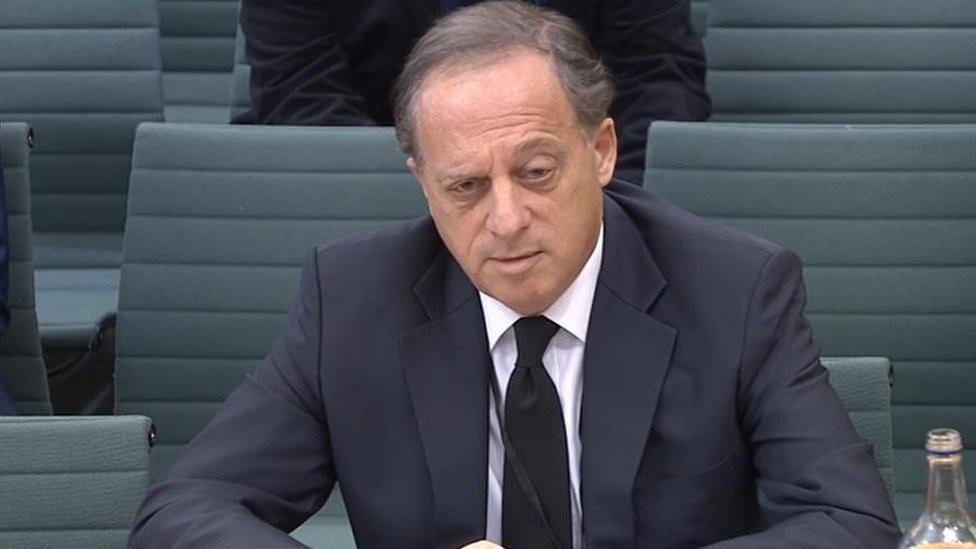Richard Sharp: Report on appointment of BBC chairman expected
- Published

Mr Sharp appeared before a committee of MPs in February
A report examining the appointment of the BBC's chairman Richard Sharp is expected imminently.
It looks at whether Mr Sharp properly disclosed details of any involvement in the facilitation of a £800,000 loan guarantee to the then PM Boris Johnson.
Mr Sharp has denied any involvement in the arrangement of a loan.
While there has not been official confirmation, sources say the independent report by Adam Heppinstall KC could be published on Friday.
It examines the public appointment process that led to Mr Sharp being appointed chairman in February 2021.
A spokesman for him has previously said that he did not facilitate an introduction between Mr Johnson and businessman Sam Blyth. The spokesman also said he was not involved in the arrangement of a loan between them.
But a cross-party committee said in February that he had not given them the "full facts" two years ago when they were considering his suitability for the BBC role.
The BBC is also conducting its own internal review over any potential conflicts of interest Mr Sharp may have in his current role as BBC chairman.
Mr Sharp was named as the government's preferred candidate for the BBC chairmanship in January 2021 and the Department of Culture, Media and Sport's (DCMS) committee backed his appointment.
The government's choice is ultimately decided by the prime minister, on the advice of the culture secretary, who is in turn advised by a panel.
Mr Sharp was asked to appear before the committee in February following the claims around a loan to Mr Johnson, which were first reported by the Sunday Times, external.
He told the committee that he had met Cabinet Secretary Simon Case in December 2020 to get permission to pass on Mr Blyth's details.
However, at the same meeting he told Mr Case that he had applied for the BBC job and therefore agreed he would have "no further participation" in order to avoid any conflict of interest or perception of conflict given his application.
In its highly critical report, the DCMS committee said Mr Sharp had recognised the need to be "open and transparent" by bringing it to the attention of the cabinet secretary, but "failed to apply the same standards of openness and candour in his decision not to divulge this information during the interview process or to this committee during the pre-appointment hearing [for the BBC job]".
"Mr Sharp's failure to disclose his actions to the panel and the committee, although he believed this to be completely proper, constitute a breach of the standards expected of individuals applying for such public appointments," the report added.
The report concluded: "Mr Sharp should consider the impact his omissions will have on trust in him, the BBC and the public appointments process."